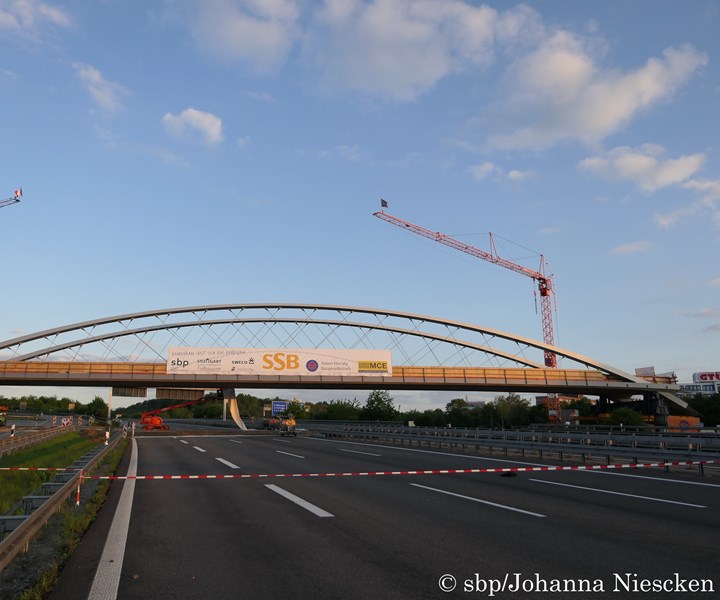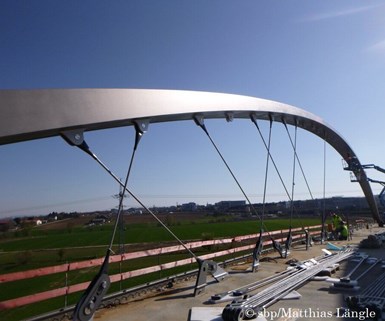German railway bridge suspended on CFRP hangers
The 72 CFRP hangers on the 127-meter-long railway bridge met installation, mass and sustainability goals.

Source | Teijin
The Stuttgart Stadtbahn bridge, installed over the A8 motorway on May 3 in Germany, is the world's first that hangs entirely on tension elements made of carbon fiber-reinforced plastic (CFRP). The 72 hangers are produced with Teijin (Wuppertal, Germany) carbon fiber, Tenax, by (Fehraltorf, Switzerland), and differs from the original plan for a conventional steel- bridge.

Source | Teijin
In the end, CFRP cables had more advantages than steel. The carbon fiber cables were cheaper, enabled the crossing of the eight freeway lanes without supporting pillars and ideally fulfilled the requirements for hangers of network arch bridges: the cross-sectional area of the CFRP cables was only a quarter compared to the steel solution. Further, due to their light weight, the 72 CFRP tension elements could be installed without a crane and with only three construction workers.
Incorporation of CFRP in the 127-meter-long railway bridge also pioneers sustainability. The EMPA (Federal Material Testing and Research Institute, Switzerland) proved that CO2 emissions during the carbon fiber manufacturing are one-third of steel, and the energy consumption is more than halved.
Teijin is accelerating the development of applications for carbon fiber in the architecture and construction industries, and intends to further strengthen its position as the world's leading provider of cost-effective and sustainable composite solutions. Dr. Bernd Wohlmann, president of Teijin Carbon Europe GmbH says, “The Stuttgart railway bridge as the first network arch bridge solely made of CFRP cables should be groundbreaking for other bridges and constructions comprising CFRP. We are only at the beginning of manifold possibilities."
Related Content
-
The potential of rCF in fiber-reinforced concrete
A look at how emerging technologies for FRP concrete provide alternatives to traditionally used steel and glass fibers that are more cost-effective and address the sustainability challenge.
-
Sustainable Infrastructure Systems creates fiber-reinforced post-consumer plastic structural panels
Australian composites manufacturer offers a scalable building solution, already established in a pedestrian bridge application, to tackle unprocessed soft plastics waste.
-
Composite SIPs for more affordable, efficient and sustainable buildings
LiteSIP panels and modules enable framing in days, cutting structural labor and total cost by up to 70% and 30%, respectively, while increasing energy efficiency and durability.






